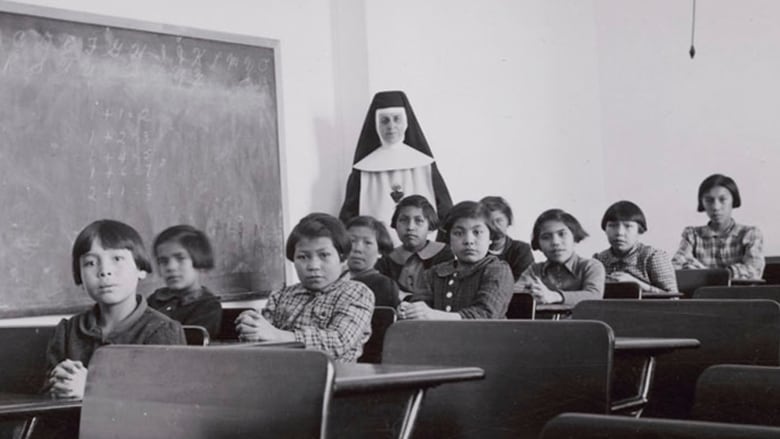Residential school survivor recalls pain of being forced from family
Steve Sweethult remembers trying to run away from his residential school at the age of 5

Residential school survivors say they hope their stories in the Truth and Reconciliation report, released Tuesdaywill help all Canadians understand the lasting impact of the schools.
The 4,000 page Truth and Reconciliation Commission report is a detailed account of what happened to indigenous children who were physically and sexually abused in government boarding schools. Dozens tried to run away and manydied in their attempt to escape.
- TRC report: 5 stories of residential school escapees who died
- Truth and Reconciliation report sheds light on problems families still face
Steve Sweethult, an independent TV producer in Victoria and co-ordinator of the aboriginal employment program for the Vancouver Island Health Authority, says he tried running away from the residential school many times as a five-year-old.
He remembers hiding under the stairs of the residential school when the brothers and sisters came looking for him.
"For me, it was mostly revolving around being alone, not having that family support network as I did at home. I mean I was five. I have a daughter who's six. I can't fathom what that is like for any child to go through that," said Sweethult, a member of the Penelakut nation.
'It was the law'
"It was law. Police would come and take you. There was nothing we could do," said Sweethult, about the desperation families felt when children were forced from their parents.
Sweethult, the only son in his family, says residential school was made more painful because of the segregation between boys and girls. He remembers being punished for trying to visit his sisters.
"Part of my memory is going, a lot of the time, to the girl side and trying to make contact with my sisters, who were there," he said.
He says that time away from family had a lasting impact.
'As indigenous people we are very forgiving'
The Truth and Reconciliation report gave Sweethult the opportunity to share his story and begin the long process of healing the wounds of isolation in residential school.
"I never really told my story to anyone until I've come to terms with what really happened when I was fiveand how it's affected me to this day. The chance to be able to do that in Victoria a number of years ago really enabled me to be able to talk about that period of time."
Sweethult hopes these stories from residential school survivors and their families will help non-aboriginal Canadians understand the significance of that piece of Canadian history.
"This is a part of your historyand a part of my history, and we need to come to an understanding that both parties or both peoples can move together in a positive light and live together in harmony."
"As indigenous people we are very forgiving we always have been."
To listen to the full audio, click the link labelled:Residential school survivor recalls pain of being forced from family.












_(720p).jpg)


 OFFICIAL HD MUSIC VIDEO.jpg)
.jpg)



























































































